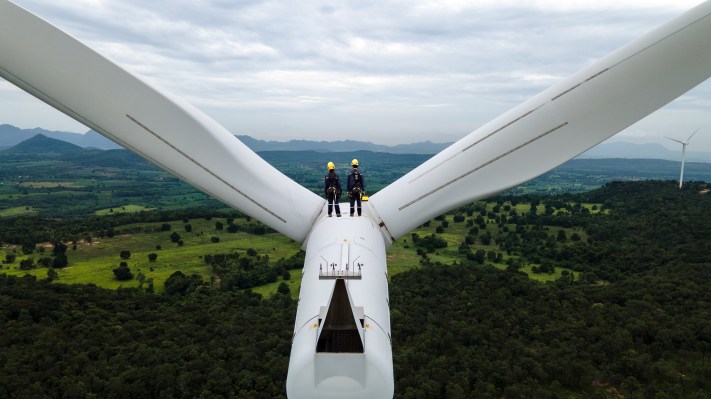Downturn be damned — last month, Union Square Ventures announced that it had raised a $200 million climate fund less than two years after raising its first climate fund.
The new fund is certain to add fuel to climate tech as 2023 kicks off after a banner 2022. Nine months ago, it seemed unlikely that the market would repeat the red-hot performance of 2021, during which $44.8 billion was invested across 1,130 deals, according to PitchBook. When the final tallies roll in, it’s possible that 2022 matched or exceeded those figures.
For USV’s general and limited partners, there were many reasons to raise a new fund. Notably, the firm’s existing limited partners were interested in another climate fund for the impact — and because they are looking for a safe investment, said Mona Alsubaei, a member of USV’s investment team.
“A lot of investors, including GPs and LPs, are moving away from where it’s risky,” she told TechCrunch. “If you look at climate, it addresses some of the core issues with the market downturn right now, including energy, food and minerals. If you invest in climate, you invest in those.”
In that sense, it’s a repeat of USV’s first climate fund, which sought to invest in a range of startups. “We believe in every sector there’s a climate angle,” Alsubaei said.
Nearly all of USV’s general fund LPs wanted in on the new climate fund. To round out the group, the firm added a few new investors that are strategically aligned.
With so much dry powder, what are USV’s plans for deployment?
The focus of the new climate fund is largely the same as USV’s first, albeit with some small tweaks. As with last time, the investment team is looking at a broad range of startups, from electricity generation and storage to carbon removal, hydrogen, electrification and carbon markets.
There are some boundaries, though. The firm is looking for companies that are working with technologies “where the science is fully de-risked,” Alsubaei said. New funding should go toward scaling and engineering, the sorts of things that many of USV’s previous investments excelled at. “I don’t want to say we won’t invest in fusion, but it’s unlikely in the near term,” she added.
While USV’s partners were buoyed by the passage of the Inflation Reduction Act, it wasn’t the trigger to launch the new fund. The firm doesn’t want to be dependent on regulations, and it wants to invest early enough that day-in, day-out political maneuvering is unlikely to be a factor.
The new fund will pay closer attention to startups addressing the question of adaptation, which seeks to prepare key parts of the economy and society for the impacts of climate change, such as adding resiliency to the electrical grid to withstand powerful hurricanes.
Previously, USV had invested in only one adaptation-centered startup, FloodMapp, which produces predictive flood maps. “It was a core part of the first climate fund thesis,” Alsubaei said. “We’re excited to spend more on that.”
That’ll make assessing the climate impact of those investments more complex, of course, since mitigation investments have a clear goal — reducing carbon emissions. Also, the customers of those adaptation-focused startups will likely be different, concentrating on utilities and governments. Their sales cycles tend to be longer and they tend to be fewer in number, but once they’re sold on an idea, revenue per customer tends to be higher.
It’s a different risk profile than, say, Lithos Carbon, which USV funded out of its first climate fund. The company works with farmers to remove carbon by spreading crushed rock on fields, ultimately selling the credits to other companies looking to eliminate their current or historical emissions.
Part of what drove USV to take a closer look at adaptation is the fact that climate change is already a reality in some parts of the world, whether it be European countries that are experiencing record flooding or Middle Eastern ones where heat waves send temperatures to dangerous highs.
“Climate is impacting many parts of the world,” Alsubaei said, “and we need to invest in solutions that address it.”
